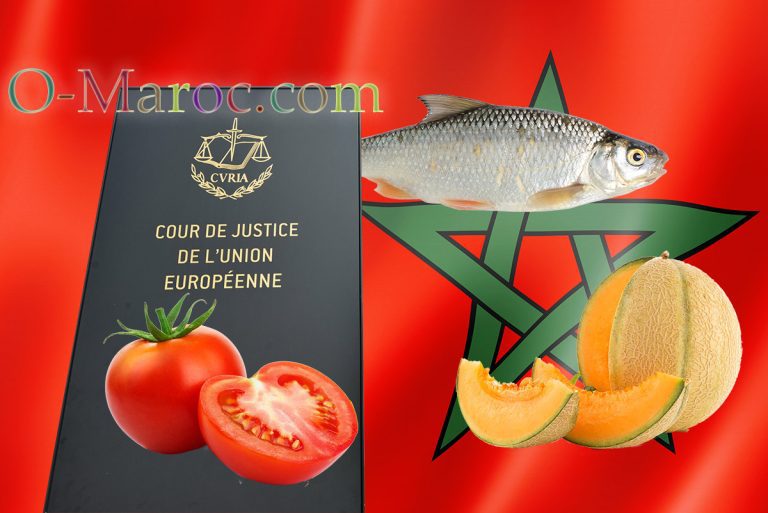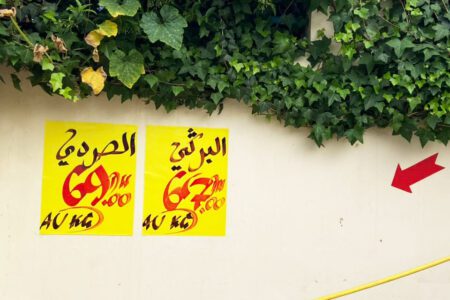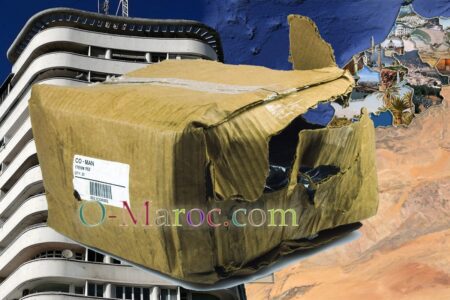No, contrary to what has been said, the European Union has not banned imports of melons and tomatoes produced in the southern provinces.
Quite the contrary, in fact.
Read on.
For the European Union, Western Sahara is a separate territory from Morocco
This goes back a long way, to two judgments in 2016 and 2018: by virtue of the principles of self-determination and the relative effect of treaties, the Western Sahara could not be considered part of Morocco within the meaning of these stipulations [the association agreements between Europe and Morocco]. It is also the situation of Western Sahara at the UN, which considers it to be a territory. And the fact that more and more countries are supporting the Moroccan solution does not mean that it has now been endorsed internationally.
Cancellation of the trade agreement between the European Union and Morocco on Western Sahara
And it is for these reasons that the Court of Justice also annulled in 2021 the agreement signed between the European Union and Morocco on 28 January 2019, which extended to Western Sahara the benefit of ‘Made in Morocco’, with the customs advantages that were attached to it.
But (and this is important) the effects of this agreement (i.e. the tariff preference and labelling) are maintained until 4 October 2025.
This also applies to the fisheries agreement
But here the agreement was fully executed, running from 2019 to 2023. Morocco received more than €200 million for authorising 128 European vessels, most of them Spanish, to fish in the waters off the west coast of Africa. The Court is asking that when the agreement is renegotiated, the ‘Saharawi people’ should be consulted, not just the inhabitants of the southern provinces. This is an impossible demand to meet, since it is the very issue that prevents any referendum on self-determination. The fisheries agreement as negotiated is therefore dead and buried until the conflict is resolved.
Understanding what’s at stake: protectionism by the back door
In the case of our tomatoes and melons, it all stems from a complaint by the Confédération Paysanne, a left-wing, ecologist, anti-CAP, anti-globalisation farming union… “Gardarem Lou Larzac” and José Bové. The Confédération Paysanne is a member of an international association, Via Campesina, as is the Moroccan FNSA.
In 2019, the Confédération Paysanne is asking the French government to ban imports of melons and tomatoes grown in the southern provinces, on the pretext of misleading labelling: according to them, the cancellation of the trade agreement implied that :
- the ‘Moroccan origin’ labelling was misleading
- Morocco did not have the legal capacity to produce certificates of origin (but no other ‘body’ does, since the SADR is not recognised internationally or by Europe).
The challenge of country-of-origin labelling is not to mislead the consumer: to pass off as European a product that comes from another area. It must reassure consumers about the quality of their health products, enabling them to know whether they are consuming a local product or one that has travelled thousands of kilometres. It is also political, for example in the case of exports of products from Israeli settlements in the occupied territories.
The French government refused to respond, which was tantamount to rejecting the request, and so quietly continued to import our Saharan tomatoes and melons.
The Confédération Paysanne got angry and appealed to the European Court of Justice, which has a certain salt given their fairly anti-European stance.
The answer from the Court of Justice of the European Union: yes but no
The Court of Justice therefore ruled:
- Morocco and Western Sahara aretwo different customs territories, so products must be labelled ‘Western Sahara origin’ (remember that Ceuta and Mellila are a separate customs territory from Spain in the eyes of Europe, just as Greenland is separate from Denmark or Saint-Pierre et Miquelon is a separate territory from France).
- France does not have the right to decide unilaterally to ban imports when Europe authorises it to do so. So even if the ‘origin Morocco’ label is deemed to be false, tomatoes and melons can continue to be imported.
In practice
Nothing will happen before 4 October 2025. After that, things will be more complicated. Customs barriers will reapply, making them more expensive and less competitive. In Europe. Not in Russia.
And what about melons and tomatoes in the Sahara?
But what shocked me the most was to learn that melons and tomatoes were produced in these desert regions. It’s as silly as the watermelons of Zagora!
In fact, they are one of the most water-rich fruits, with 94% water in a tomato, more than in a watermelon (91%) or a melon (90%). It takes between 100 and 200 litres of water to produce one kilo of tomato, melon or watermelon!
Once again, we are exporting our water.
Beyond the patriotic hurt, I think it would be a good idea to question the relevance of these crops.
The Moroccan reaction: ‘this does not concern us’.
Morocco claims not to be affected by this decision, which was handed down on the basis of complaints lodged by the Polisario (not recognised by Morocco) and a French trade union.
That’s easy to say, since it invalidates an agreement it has signed with the European Commission.
The second point in Nasser Bourita’s response concerns the involvement of the Saharawi people and the issue of the population to be consulted:
It reflects Morocco’s position, of course.
The implicit question behind it is ‘who gets to decide and should the southern provinces be deprived of these export resources until a definitive solution is found?’
International reactions in Morocco’s favour
European countries such as France and Spain have expressed their support for Morocco and their desire to continue signing trade agreements with the country on a bilateral basis, replacing the defunct agreement with the European Union.
And Russia has just signed a fisheries agreement with the kingdom.
More information
- Rabat signe un accord de pêche avec Moscou et Alger grince des dents
- Atalyar analyses the signature of the Russo-Moroccan fishing agreement as a sign of deteriorating diplomatic relations between Russia and Algeria, with Putin showing less confidence in a historic ally whose last state visit was inconclusive. Conversely, the agreement with Morocco is a strong signal to the EU: we have the means to sell elsewhere, Morocco proves.
 A typo or syntax error? You can select the text and hit Ctrl+Enter to send us a message. Thank you! If this post interested you, maybe you can also leave a comment. We'd love to exchange with you !
A typo or syntax error? You can select the text and hit Ctrl+Enter to send us a message. Thank you! If this post interested you, maybe you can also leave a comment. We'd love to exchange with you !




